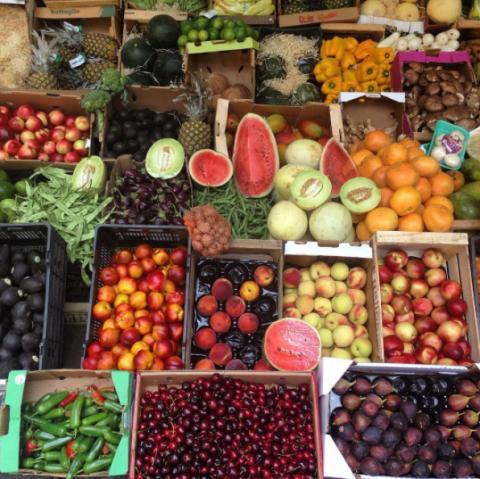
Globalization and domestic big agriculture have made it possible to get avocados in the winter, oranges that are actually orange, and out of season or imported fruit at cheap prices. However, this globalized demand for food also has its share of problems. Importing food from other countries requires longer transportation periods, could lead to more waste, and can be more expensive for people. Eating food that is out of season is also less nutritious. Below are some ways that local eating has an impact on your well-being.
Environmental Impact
Locally grown food has to travel less in order to get to you. This requires more miles, carbon emissions, and can result in food waste. Imported or out of season food requires more transport, fuel, and resources in order to get to the supermarket. Also, out of season food is sometimes wrapped in wasteful packaging in order to keep it neat and fresh. Importing food from a certain region can also put strain on its local resources. Growing cash crops in order to satisfy larger global markets could cause problems if food production suddenly stops. Blight, climate change conditions, and a sudden decrease in demand could cause food waste or render land unusable for future crops.
Health Benefits
Food that is in season is usually more nutritious. Local growers can usually tell you when the food was picked and the types of fertilizers (or not) used in farming. In addition, local produce contains the necessary nutrients to assist with our immune system. Winter fruits and vegetables tend to have vitamin C, which helps fight colds during the winter season. Eating locally sourced food reduces the risk of contamination. Not all countries or states have suitable guidelines that help prevent contamination from harmful bacteria.
The way food is washed or treated to make it safe for shipping could also have a negative impact on your health. Non-locally sourced food could also contain harmful pesticides or fungicides that supermarket clerks don’t know about. Fresher local produce also tastes better than imported or out of season food.
Better for the Economy
Locally sourced food most likely helps local growers and farms as opposed to larger big-box stores. This keeps money in the local economy and helps provide more jobs. Large chain supermarkets tend to be owned by a single individual or entity, and supporting them means that money flows out of local economies. Though big-box stores do have lower prices, the benefits of buying local far outweigh these seemingly low costs. Buying local helps the community foster closer relationships and support farmers that can accurately answer questions about their produce.
Though many of us have grown accustomed to eating certain imported delicacies, buying local produce is sure to benefit you – and your community -- in some way. Happy eating!








